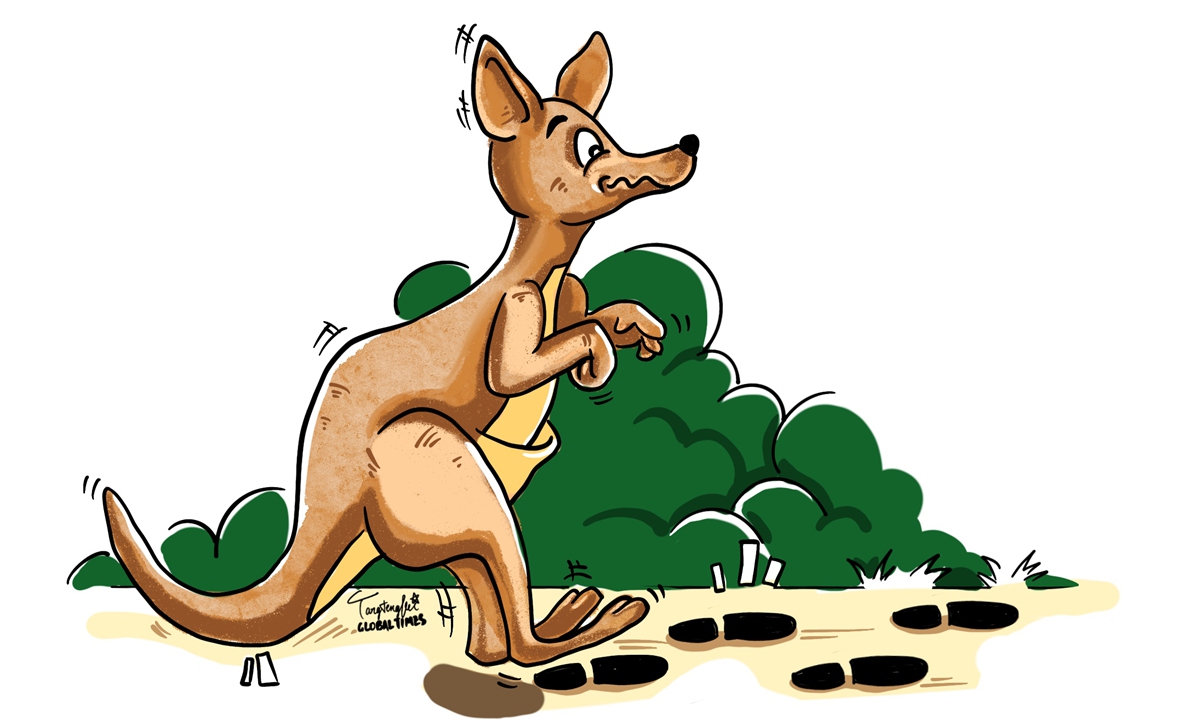Australia’s US diplomatic policy dependence will backfire
Source: Global Times Published: 2020/8/4 18:53:23

Illustration: Tang Tengfei/GT
Australia has recently revealed its high dependency on the US with regard to diplomatic policies, playing along or even serving as a vanguard for the US to sound out potential risks before taking action. Australia's US diplomatic policy dependence will backfire and undermine its development in the long run.Among recent moves that closely follow the US, Canberra has reportedly begun to scrutinize Chinese short-video platform TikTok. US President Donald Trump has just initiated his crackdown on the app.
Under the guise of national security, the Trump administration is now forcing TikTok to sell its business in the US to local companies, with US president Donald Trump himself even reportedly suggesting the US government should get a "very substantial portion" of the deal's sale price.
Australian Prime Minister Scott Morrison has asked intelligence agencies to investigate TikTok, local media ABC News reported.
Developed by Chinese tech firm ByteDance, TikTok is an international version of Chinese short-video platform Douyin, growing rapidly and attracting hundreds of millions of young users across the world. Its skyrocketing growth has inevitably generated pressure for other social media platforms, which could lead to joint crackdown from local governments and enterprises.
As a member of the Five Eyes, Australia has been loyally serving the US' anti-China strategy despite the Chinese market being its largest export destination. Amid Australia's accelerating animosity toward China, Chinese investment in Australia fell 58 percent year-on-year in 2019, per research from the University of Sydney. Trade disputes between the two countries have also been emerging.
However, with the COVID-19 pandemic still roaring across the world and shattering global trading systems, Australia has recorded a higher trade dependency on China even under bilateral trade tensions. China's share of Australia's goods exports increased to a record high of 46 percent in June from 35 percent in February, the Australian Financial Review reported, citing data from the Australian Bureau of Statistics.
Alongside its increasing dependency on the Chinese market, Canberra's contradictory anti-China mindset has been developing as well: It doesn't want to lose the Chinese market, but constantly tries to sabotage its relation with China.
China-Australia bilateral relations have slid to a freezing point. Though trade remains strong so far, the damage deteriorating relations are having on Australia's economy will show in the long term if Canberra does not correct its path.
With the Morrison administration continually banging the anti-China drum and limiting Chinese investment, the spread of negative sentiment among Chinese enterprises and consumers will not stop.
China and Australia don't have conflicting fundamental interests. The current state of bilateral relations was unilaterally created by Canberra against the backdrop of the nation's excessive dependence on the US with regard to diplomatic policies.
Although China and the US, two great powers in the world, have seen their rivalry intensify, there remains potential for cooperation in the long run. Australia is blindly serving as Washington's vanguard at the cost of its relations with Beijing. That will backfire and hinder its international status and long-term economic growth.
The article was compiled based on an interview with Liu Qing, director of the department for Asia-Pacific security and cooperation at the China Institute of International Studies. bizopinion@globaltimes.com.cn
Posted in: EXPERT ASSESSMENT